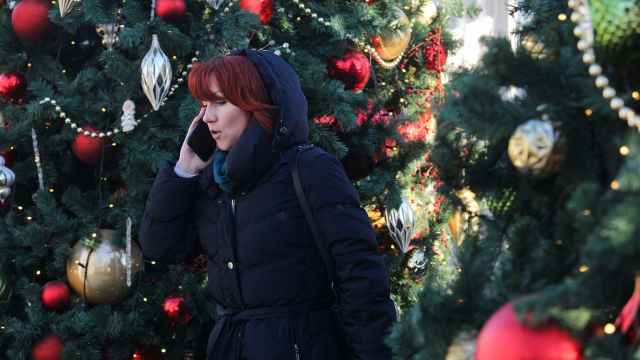The Federal Security Service said a Russian national accused of feeding classified information to four British diplomats through a fake rock was a government official.
The identity of the two Russian suspects has never been disclosed, and FSB General Sergei Sorokin provided few details in his televised acknowledgement late Sunday that one of them was a bureaucrat.
The suspect was "a bureaucrat with one of the highest organizations in the Russian government," Sorokin told reporter Arkady Mamontov in a documentary aired on Rossia state television.
Mamontov in January 2006 broke the story about British diplomats receiving information on pocket computers from an electronic device hidden in a fake rock in a Moscow park. The information was apparently left by the two Russians.
The spy scandal returned to the spotlight last week when the BBC aired a documentary in which Jonathan Powell, former Prime Minister Tony Blair's chief of staff, admitted that the fake rock story had been true.
The 2006 scandal gave then-President Vladimir Putin an excuse to warn against foreign funding for Russian nongovernmental organizations because one of the four British diplomats implicated in the case, Marc Doe, was responsible for signing off on British government grants to Russian NGOs, including the Moscow Helsinki Group.
Sorokin conceded that no human rights activists had been involved in the spying activities conducted by the British diplomats. But he accused British intelligence of "discrediting" Russian human rights activists by appointing Doe to work with them in his official capacity.
Still, human rights groups did not get off without criticism in the Sunday night documentary. Mamontov said Moscow Helsinki Group head Lyudmila Alexeyeva received a U.S. passport in 2002.
But Alexeyeva told the BBC on Monday that she was granted U.S. citizenship in 1982 after she was forced to emigrate by the Soviet authorities. She said she only renewed her 1982 passport in 2002.
A Message from The Moscow Times:
Dear readers,
We are facing unprecedented challenges. Russia's Prosecutor General's Office has designated The Moscow Times as an "undesirable" organization, criminalizing our work and putting our staff at risk of prosecution. This follows our earlier unjust labeling as a "foreign agent."
These actions are direct attempts to silence independent journalism in Russia. The authorities claim our work "discredits the decisions of the Russian leadership." We see things differently: we strive to provide accurate, unbiased reporting on Russia.
We, the journalists of The Moscow Times, refuse to be silenced. But to continue our work, we need your help.
Your support, no matter how small, makes a world of difference. If you can, please support us monthly starting from just $2. It's quick to set up, and every contribution makes a significant impact.
By supporting The Moscow Times, you're defending open, independent journalism in the face of repression. Thank you for standing with us.
Remind me later.





